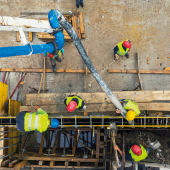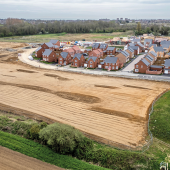The future of facilities management

Paul Bullard, Product Director at SFG20, says changes in the industry have forced a shift in priorities and duties for those working in facilities management in 2024 and beyond.
The past few years have seen significant changes in legislation and regulations within the facilities management space such as the Fire Safety Act 2021, the Building Safety Act 2022 and the Fire Safety Regulations (England) 2022, to name a few. With the constant evolution of legislations and regulations, uncertainty surrounding tasks is on the rise.
2024 will continue to see a greater spotlight placed on proof of compliance, especially as increasing numbers of buildings fall within the scope of the Building Safety Act. This will make providing a thorough, digital trail of maintenance tasks a requirement. Building owners, property managers and contractors will need to ensure that statutory maintenance works are being carried out, that the information is up to date and that evidence can be provided.
Ensuring that maintenance tasks are being undertaken not only at the right time but also by the right person is a priority for facility managers. This becomes a particular concern when a facility outsources a large proportion of its maintenance, reducing both visibility and control over the standard to which tasks are completed.
Property managers are also under the strain of collaborating with multiple stakeholders, from building owners to facility management consultants and engineers, who all play a crucial role in the safe and legal maintenance of a facility.
Technology dominance
In SFG20’s poll, 66% of asset owners and property managers said that keeping a Golden Thread of information about a facility up to date is a main concern for their business. This shows that many current facilities management systems are not aligning in a way that supports efficient, collaborative working. Developing and providing software solutions that enable teams to share data and work efficiently will continue to characterise industry changes.
AI offers the potential to enhance rather than replace human roles, with new opportunities and insights. These technologies facilitate work with much larger datasets for predictive maintenance, providing a time-efficient and proactive approach to facility management.
With the current focus on ensuring compliance, facility managers will be faced with the challenge of reducing costs, an obstacle that an effective use of AI could help eliminate – as long as businesses develop the necessary skills to successfully work alongside AI technology.
The UK’s built environment is on the march toward carbon neutrality, propelled by technological strides, governmental policies and heightened public climate awareness. The government’s Ten Point Plan for a Green Industrial Revolution and Net Zero Strategy charts a course, setting out ways to bolster energy efficiency, champion low-carbon heating solutions and encourage the construction of energy-efficient new homes. Consequently, the need for sustainable facility maintenance practices will increase too, finding ways to improve the energy efficiency of existing buildings through sustainable maintenance. Facilities managers are facing a great deal of change.
For more, visit sfg20.co.uk
Read the government’s Ten Point Plan for a Green Industrial Revolution at bit.ly/GOV_greenrevolution








